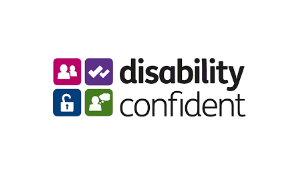Moving to university is a major milestone for students, but along with the excitement of independence comes new responsibilities, especially when it comes to safety. During Student Fire Safety Week, we want to focus on one of the leading causes of fire in student accommodation: cooking fires.
The Risk of Kitchen Fires in Student Halls
According to London Fire Brigade, more than 1,200 cooking-related fires and false alarms occur annually in university student halls across the city alone. This trend is mirrored across the UK, with cooking accidents consistently being the top cause of fires in student accommodations.
Most of these incidents stem from common kitchen activities: unattended cooking, overheating pans, or improper use of kitchen equipment. Whether it’s frying food in too much oil or a forgotten pizza left in the oven, these situations can quickly escalate into a fire emergency.
Why Are Students at Higher Risk?
- Unfamiliarity with Cooking Equipment:
Many students arrive at university with little experience using kitchen appliances. From microwaves to stovetops, inexperience can lead to accidents if proper precautions aren’t followed.
- Distractions:
Student life is busy and full of distractions. It’s easy to become absorbed in a phone call, a text, or even studying while cooking, increasing the likelihood of leaving something unattended on the stove.
- Communal Living:
In shared accommodations, multiple people cooking at the same time can lead to overcrowded kitchens, making it easier for accidents to happen. Additionally, students may rely on others to turn off appliances or handle food properly, assuming “someone else” will take responsibility.
Essential Cooking Safety Tips
With cooking fires being so prevalent, it’s important for students to adopt safe habits in the kitchen. Here are some key tips:
- Never leave cooking unattended. Always stay in the kitchen while cooking, particularly when frying, grilling, or using high heat.
- Avoid distractions. Try to limit phone usage or studying while cooking to ensure you remain focused.
- Keep kitchen appliances clean. Grease build-up on ovens or stove hobs can easily ignite, so regular cleaning is essential.
- Invest in a kitchen timer. Use a timer to remind yourself when food is cooking, especially if you’re multitasking.
- Don’t cook under the influence. Cooking after a night out or while tired increases the likelihood of accidents. Plan to eat before heading out or rely on cold meals if needed.
The Importance of Working Fire Alarms
Ensuring that smoke alarms are installed and functional in student halls is crucial. Many cooking incidents cause smoke without leading to large fires, but a false sense of security can develop if smoke alarms are consistently triggered by minor incidents. Instead of disabling smoke detectors or removing batteries, students should address the root cause of the issue—whether it’s installing better ventilation, cooking with less oil, or keeping a close eye on food.
What to Do in Case of a Kitchen Fire:
- Don’t use water on grease fires. This can cause the fire to spread. Instead, smother the flames by covering the pan with a lid or fire blanket.
- Turn off the heat if it’s safe. Switch off the cooker and let it cool before attempting to move it.
- Evacuate and call for help. If you can’t extinguish the fire quickly, evacuate the area and call the fire brigade immediately.
How Can Student Accommodation Providers Help?
From looking after some of the biggest student accommodation providers in the UK, CDS understands the importance of protecting students in communal living environments. Here are a few steps accommodation providers can take to reduce fire risks:
- Conduct regular fire safety inspections. Ensure fire alarms, fire extinguishers, and other safety devices are up to date and fully operational.
- Educate students. Host regular fire safety workshops to raise awareness about common hazards, including cooking safety, electrical safety, and evacuation procedures.
- Install kitchen fire suppression systems. For extra protection, consider installing fire suppression systems specifically designed to deal with kitchen fires. These systems can quickly extinguish flames before they spread.
Cooking fires are preventable, but they require both awareness and action. Students must prioritise safety in their kitchens, and accommodation providers should support them with the right tools and education. By working together, we can significantly reduce the number of fire-related incidents and ensure students enjoy a safe and successful university experience.
For more information about fire safety in student accommodations, feel free to contact us at CDS. We’re here to help you create safer living environments.


















